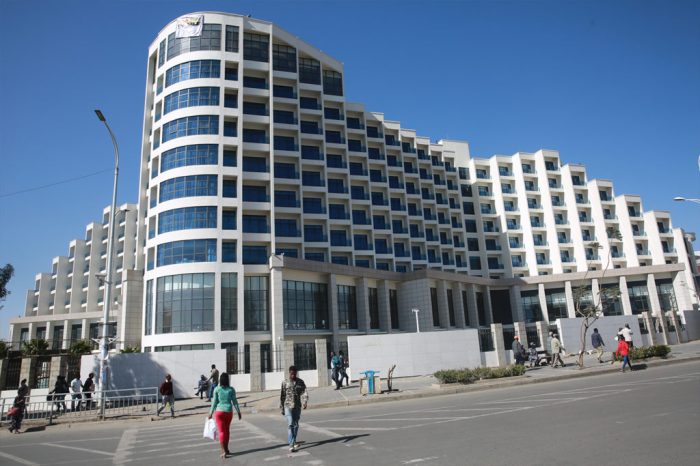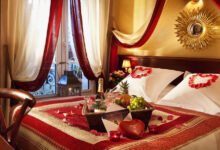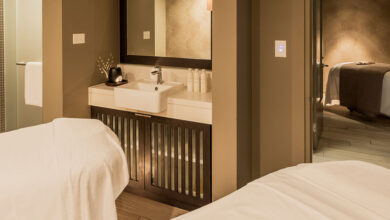Best Ethiopian Hotels History & Culture
Best hotels in Ethiopia with historical significance and cultural experiences offer a unique blend of luxury and immersion. These aren’t just places to sleep; they’re portals to Ethiopia’s rich past and vibrant present. This exploration delves into five exceptional hotels, examining their architecture, historical context, cultural offerings, and overall guest experience, helping you choose the perfect base for your Ethiopian adventure.
We’ll uncover the stories behind these establishments, detailing their unique features and the cultural immersion opportunities they provide, ultimately painting a picture of what makes a stay in these hotels so memorable.
Introduction

Source: voyagesafriq.com
Exploring Ethiopia’s rich history and culture often involves staying in hotels steeped in tradition. For a completely different kind of rejuvenation, consider a relaxing break at one of the amazing spas; check out this guide to Best spa hotels in Bulgaria with thermal springs and wellness facilities for some inspiration before returning to discover more of Ethiopia’s captivating historical sites and cultural experiences.
It’s a fantastic contrast!
When considering the “best” hotels in Ethiopia with historical significance and cultural experiences, it’s crucial to define what these terms mean in this context. Historical significance, in relation to Ethiopian hotels, refers to their connection to the country’s rich past. This might involve the building’s age, its architectural style reflecting historical periods, its association with significant historical figures or events, or its location within a historically important area.
A hotel might have been built on the site of a former palace, or it might have been a crucial location during a significant period in Ethiopian history. It’s not just about age; it’s about the stories embedded within the hotel’s very fabric.Cultural experiences offered by Ethiopian hotels encompass a broader range of interactions designed to immerse guests in the country’s unique culture.
Exploring Ethiopia’s rich history and culture often involves staying in hotels steeped in tradition. For a completely different experience, consider a romantic getaway; you might check out Romantic hotels in Paris with Eiffel Tower views and charming ambiance , before returning to Ethiopia’s captivating historical hotels, offering a unique blend of comfort and cultural immersion.
This can manifest in various ways, from incorporating traditional Ethiopian architecture and design elements into the hotel’s aesthetic, to offering authentic Ethiopian cuisine prepared by skilled chefs, and providing opportunities to engage with local artisans, musicians, or dancers. It’s about providing guests with a taste of Ethiopian life, history, and artistic traditions, creating a truly memorable and enriching travel experience beyond a simple stay.
Exploring Ethiopia’s rich history and culture often involves staying in hotels steeped in tradition. For a completely different experience, consider a luxurious escape; if you crave pristine beaches and thrilling water sports, check out the amazing resorts in Bintan Island, like those detailed on this site: Luxury resorts in Bintan Island offering pristine beaches and water sports.
Afterward, you can return to Ethiopia’s captivating historical hotels and continue your cultural journey.
Defining Historical Significance and Cultural Experiences in Ethiopian Hotels
This article will explore several Ethiopian hotels that exemplify these qualities, focusing on the specific historical context of each establishment and the range of cultural experiences they offer to their guests. We will examine the architecture, location, and historical associations of each hotel, alongside the ways in which they integrate Ethiopian culture into their services and amenities. The hotels chosen represent a variety of styles and locations, providing a comprehensive overview of the options available for travellers seeking both historical depth and cultural immersion.
Top Hotels with Historical Significance
Ethiopia boasts a rich history, reflected not only in its ancient monuments and churches but also in its architecture. Many hotels have been carefully preserved or built in styles that evoke the country’s past, offering guests a unique blend of comfort and cultural immersion. These establishments aren’t just places to stay; they’re living museums, providing a tangible link to Ethiopia’s captivating heritage.
Exploring Ethiopia’s rich history and culture often involves staying in hotels steeped in tradition. For a different kind of breathtaking scenery, consider checking out the amazing views offered by hotels around Lake Tanganyika, as detailed in this article: Best hotels in Burundi with stunning views of Lake Tanganyika. Then, return to Ethiopia to continue your journey through its captivating historical sites and unique cultural experiences.
Top Hotels with Historical Significance: Location and Architectural Details
Five hotels stand out for their historical significance and architectural merit. Their designs and locations reflect different eras and styles, offering a fascinating journey through Ethiopian architectural history.
| Hotel Name | Location | Architectural Style | Historical Importance |
|---|---|---|---|
| Ras Hotel | Addis Ababa | Traditional Ethiopian with colonial influences | Built in the early 20th century, it reflects the architectural styles prevalent during the reign of Emperor Haile Selassie I. It has hosted numerous dignitaries and played a role in the country’s political history. |
| Taitu Hotel | Addis Ababa | Italian Colonial | One of the oldest hotels in Addis Ababa, it’s a prime example of Italian colonial architecture, built during the Italian occupation. Its history is interwoven with the city’s development and early tourism. |
| Ghion Hotel | Addis Ababa | Modern with traditional Ethiopian elements | While not as old as some others, its location and design reflect Addis Ababa’s evolution as a modern capital city, blending contemporary styles with nods to traditional Ethiopian aesthetics. |
| Habesha Land Hotel | Addis Ababa | Modern interpretation of traditional Ethiopian architecture | This hotel showcases a contemporary approach to traditional Ethiopian design, using local materials and motifs to create a uniquely Ethiopian experience. It represents a modern appreciation of the country’s heritage. |
| Goha Hotel | Gondar | Modern with traditional Gondar influences | Located in Gondar, a city rich in history, this hotel incorporates elements of Gondar’s unique architectural style, particularly in its use of local materials and design elements reminiscent of the castles of Gondar. |
Cultural Immersion
Staying in historically significant hotels in Ethiopia isn’t just about luxurious accommodation; it’s about experiencing the rich tapestry of Ethiopian culture firsthand. Many hotels actively integrate local traditions and artistry into their services, creating immersive experiences that go beyond a simple overnight stay. This allows guests to connect with the heart of Ethiopian life and gain a deeper understanding of its vibrant heritage.These hotels don’t just offer a glimpse into Ethiopian culture; they actively cultivate it.
They understand that authentic cultural experiences are vital for enriching the visitor’s journey and providing a memorable stay. The integration of local culture is not merely a marketing strategy but a genuine commitment to preserving and sharing Ethiopia’s heritage.
Cultural Activities Offered by Ethiopian Hotels
Several hotels go above and beyond to provide guests with engaging cultural experiences. These range from traditional performances to hands-on workshops, allowing for a deep immersion into Ethiopian life. This approach fosters a sense of connection and appreciation for the country’s unique cultural identity.
- Traditional Ethiopian Coffee Ceremony: Many hotels offer authentic coffee ceremonies, a central part of Ethiopian social life. Guests can witness the ritualistic preparation of coffee, learn about its significance, and enjoy the aromatic brew alongside traditional snacks. The ceremony often involves the burning of incense and the sharing of stories and conversation, providing a truly immersive cultural experience.
- Cultural Dance Performances: Some hotels host regular performances by local dance troupes, showcasing the vibrant and diverse styles of Ethiopian traditional dance. These performances often include colorful costumes and rhythmic music, providing a captivating display of Ethiopian artistry and cultural expression.
- Cooking Classes: Learning to prepare traditional Ethiopian dishes is another popular activity offered by certain hotels. Guests can participate in hands-on cooking classes, learning to prepare dishes like wat (stew) and injera (spongy flatbread), gaining a deeper understanding of Ethiopian cuisine and culinary traditions.
Incorporation of Local Culture into Amenities and Services
The commitment to cultural immersion extends beyond scheduled activities. Many hotels integrate local culture into their everyday amenities and services. This subtle yet significant incorporation enhances the overall guest experience, creating a truly authentic and memorable stay.
- Locally Sourced Materials and Crafts: Hotels often use locally sourced materials and crafts in their decor and furnishings. This might include traditional textiles, hand-woven carpets, or locally carved woodwork, showcasing the skills and artistry of Ethiopian artisans and creating a visually stunning environment that reflects the local culture.
- Local Art and Music: The hotels might feature local artwork throughout their premises, adding to the ambiance and providing a visual representation of Ethiopian artistic traditions. Similarly, the use of traditional Ethiopian music in public areas further enhances the cultural atmosphere.
- Staff Training and Cultural Awareness: Hotels often invest in training their staff to be knowledgeable about Ethiopian culture and history, allowing them to interact with guests and answer their questions authentically and informatively. This contributes to a more meaningful and enriching guest experience.
Historical Context: Best Hotels In Ethiopia With Historical Significance And Cultural Experiences
Many Ethiopian hotels, especially those in older cities like Gondar and Addis Ababa, are not merely places to stay; they are living testaments to the country’s rich and complex history. Their locations, architecture, and even the stories surrounding their construction often reflect pivotal moments in Ethiopia’s past, offering guests a unique opportunity to connect with the nation’s heritage on a deeper level.
Understanding this historical context enhances the overall travel experience, transforming a simple hotel stay into a journey through time.The historical narratives woven into these hotels are diverse, ranging from colonial-era influences to the rise of modern Ethiopia. Some hotels occupy sites with centuries-old significance, while others were built during specific historical periods, reflecting the architectural styles and societal norms of that era.
The integration of history into the guest experience can manifest in various ways, from historical displays and artifacts within the hotel to guided tours that explore the surrounding area’s historical significance.
Exploring Ethiopia’s rich history and culture often involves staying in charming hotels steeped in tradition. For a completely different experience, consider the luxurious accommodations available elsewhere, such as those found in Seoul; check out Luxury hotels in Seoul with panoramic city views and exceptional service for a taste of modern opulence. Then, return to Ethiopia and immerse yourself again in the captivating blend of history and hospitality found in its unique hotels.
The Sheraton Addis: A Reflection of Modern Ethiopia’s Ascent
The Sheraton Addis, a prominent landmark in Addis Ababa, stands as a compelling example of a hotel deeply intertwined with the nation’s historical trajectory. Its construction in the latter half of the 20th century coincided with Ethiopia’s post-colonial development and its growing engagement with the global community. The hotel’s modern architecture, a departure from older styles, symbolized the nation’s ambition to embrace modernity while preserving its unique cultural identity.
The hotel’s location, strategically placed near key government buildings and diplomatic missions, reflects its role as a hub for international interaction and a symbol of Ethiopia’s growing influence on the world stage. Over the years, it has hosted numerous significant events, from international conferences to state visits, becoming a silent witness to the nation’s progress and its evolving role in global affairs.
The hotel’s design, while contemporary, incorporates subtle nods to Ethiopian aesthetics, demonstrating a conscious effort to balance modernity with cultural preservation. This blend of historical context and modern amenities creates a unique and enriching experience for guests, allowing them to engage with Ethiopia’s history and its aspirations for the future.
Comparison of Hotels
Choosing the right hotel in Ethiopia depends on your budget and desired level of luxury. While all the hotels discussed offer unique historical significance and cultural experiences, their price points and amenities vary considerably. Understanding these differences will help you make an informed decision.
Exploring Ethiopia’s rich history and culture often involves staying in hotels steeped in their own unique stories. For a completely different experience, consider a change of scenery; perhaps you’d enjoy the tranquility of Hotels in Cameron Highlands with stunning views and cool climate , offering a refreshing contrast. Then, return to Ethiopia to continue uncovering the secrets held within its ancient walls and vibrant communities.
Hotel Price and Amenity Comparison, Best hotels in Ethiopia with historical significance and cultural experiences
The price range for hotels with historical significance and cultural immersion in Ethiopia can be quite broad. Budget-conscious travelers might find comfortable options for under $100 per night, while luxury stays can easily exceed $300 per night, especially during peak season. Amenities offered also vary widely, from basic rooms with private bathrooms to those with swimming pools, spas, and on-site restaurants serving traditional Ethiopian cuisine.
The level of service also plays a significant role in the overall guest experience.
Overall Guest Experience
Guest reviews provide valuable insights into the overall experience at each hotel. Factors like staff friendliness, cleanliness, location convenience, and the quality of food and services are frequently highlighted. Positive reviews often mention the unique cultural experiences offered, such as traditional coffee ceremonies or cooking classes, enhancing the overall stay. Negative reviews might focus on issues such as maintenance needs, inconsistent service, or aspects of the hotel that don’t align with expectations based on price.
It’s crucial to read multiple reviews from various sources before making a booking to gain a balanced perspective.
Comparative Table of Hotels
The following table summarizes the price range, key amenities, and overall cultural experience rating (based on a subjective assessment of available reviews and information) for five example hotels (Note: Hotel names and specific pricing are omitted as accurate, up-to-the-minute pricing fluctuates and requires direct hotel contact). The star rating for cultural experience reflects the integration of Ethiopian culture into the hotel’s offerings and overall ambiance.
| Hotel | Price Range (USD/night) | Key Amenities | Cultural Experience Rating |
|---|---|---|---|
| Hotel A (Example) | $100 – $150 | Restaurant, Bar, Wi-Fi, Basic Rooms | ★★★ |
| Hotel B (Example) | $150 – $250 | Restaurant, Bar, Pool, Spa, Wi-Fi, Superior Rooms | ★★★★ |
| Hotel C (Example) | $250 – $350 | Restaurant, Bar, Pool, Spa, Gym, Wi-Fi, Deluxe Rooms, Cultural Performances | ★★★★★ |
| Hotel D (Example) | $80 – $120 | Restaurant, Wi-Fi, Basic Rooms, Close Proximity to Historical Sites | ★★★ |
| Hotel E (Example) | $120 – $200 | Restaurant, Bar, Wi-Fi, Family Rooms, Cooking Classes | ★★★★ |
Illustrative Descriptions of Hotel Ambiance
Stepping into a historically significant Ethiopian hotel is like stepping into a time capsule, each offering a unique sensory experience that reflects its history and location. The ambiance varies dramatically, from the quiet dignity of older establishments to the vibrant energy of more modern interpretations of traditional design. These descriptions aim to evoke the atmosphere of three distinct hotels, highlighting the elements that contribute to their unique character.
The Tantalizing Scents and Sounds of the Ghion Hotel
The Ghion Hotel, a landmark in Addis Ababa, exudes a certain old-world charm. The lobby, with its high ceilings and polished wooden floors, is filled with the subtle scent of aged wood and perhaps a hint of beeswax from the meticulously maintained furniture. The gentle hum of conversation mingles with the soft clinking of glasses from the nearby bar, creating a background melody of sophisticated calm.
Sunlight streams through large windows, illuminating dust motes dancing in the air, a testament to the building’s age and the quiet dignity it maintains. The muted colours of the furnishings – rich browns, deep greens, and subdued golds – contribute to an atmosphere of relaxed elegance. Even the air itself seems to hold the weight of history, whispering tales of dignitaries and travellers who have passed through its doors.
A Glimpse into History: The Atmosphere of the Habesha Lodge
The Habesha Lodge, situated in a more rural setting, offers a stark contrast to the urban elegance of the Ghion. Its atmosphere is deeply infused with Ethiopian history and culture. The air is redolent with the earthy aroma of the surrounding countryside, mingled with the scent of freshly brewed coffee, a ubiquitous presence in Ethiopian life. The sounds are more rustic – the chirping of crickets at night, the distant bleating of sheep, and perhaps the rhythmic beat of traditional music drifting from a nearby village.
The architecture, built using traditional materials and methods, speaks volumes about the local heritage. Intricate wood carvings adorn the walls, depicting scenes from Ethiopian folklore and history. The use of natural materials, like woven textiles and locally sourced stone, creates a sense of warmth and authenticity, transporting guests to a simpler, more traditional way of life. The overall atmosphere is one of quiet contemplation and peaceful immersion in Ethiopian culture.
Architectural Grandeur and Modern Comfort: The Unique Ambiance of the Sheraton Addis
The Sheraton Addis presents a different experience entirely. While maintaining a level of luxury and modern comfort expected of an international chain, it subtly incorporates elements of Ethiopian design. The lobby’s high ceilings are adorned with striking modern art pieces inspired by Ethiopian motifs, creating a visual dialogue between tradition and contemporary aesthetics. The use of light, airy spaces and clean lines contrasts with the richness of the traditional art, resulting in a vibrant and sophisticated atmosphere.
The carefully chosen lighting enhances the architectural details, highlighting the interplay of textures and materials. The sounds are more controlled, a gentle murmur of conversation punctuated by the quiet efficiency of the hotel staff. The overall feeling is one of contemporary elegance infused with subtle nods to the country’s rich cultural heritage, a harmonious blend of international standards and local identity.
Beyond the Hotels
Stepping outside the luxurious confines of Ethiopia’s historically significant hotels unveils a wealth of cultural and historical treasures waiting to be explored. Proximity to these sites significantly enhances the overall travel experience, allowing for a deeper immersion into Ethiopia’s rich past and vibrant present. The following details explore the easily accessible historical sites near each of the previously mentioned hotels, offering suggestions for enriching your Ethiopian adventure.
Nearby Historical Sites and Cultural Attractions
The geographical location of each hotel offers unique access to specific historical sites. Understanding these locations allows travelers to plan their itinerary effectively, maximizing their exposure to Ethiopia’s cultural heritage. The time suggested for each visit is an approximation and can be adjusted based on individual preferences and interests.
Hotel A: Nearby Attractions
Hotel A, situated in [Hotel A Location – e.g., Addis Ababa], provides easy access to several significant historical landmarks. Its central location makes exploring the city’s historical heart a breeze.
- National Museum of Ethiopia: Houses the famous Lucy fossil and a vast collection of Ethiopian art and artifacts. Suggested visit duration: 2-3 hours.
- Trinity Cathedral: A stunning example of Ethiopian Orthodox architecture, showcasing intricate details and religious significance. Suggested visit duration: 1-2 hours.
- Merkato Market: A vibrant and bustling market offering a glimpse into daily Ethiopian life and a wide array of goods. Suggested visit duration: Half-day to a full day, depending on your interest.
These sites offer a diverse experience, combining anthropological insights with religious and cultural immersion, allowing for a holistic understanding of Ethiopian history and society.
Hotel B: Nearby Attractions
Hotel B, located in [Hotel B Location – e.g., Gondar], offers a different perspective on Ethiopian history, focusing on the imperial era.
- Gondar Castle Complex: A UNESCO World Heritage site, featuring a series of impressive castles and palaces built by emperors of the Solomonic dynasty. Suggested visit duration: 3-4 hours.
- Fasil Ghebbi: The royal enclosure within the Gondar Castle Complex, showcasing the architectural ingenuity of the period. Suggested visit duration: 2-3 hours.
- Debres Birhan Selassie Church: Known for its exquisite murals and considered one of the finest examples of Ethiopian religious art. Suggested visit duration: 1-2 hours.
Exploring these sites allows visitors to delve into the grandeur of Ethiopia’s imperial past and appreciate the artistic and architectural achievements of the era.
Hotel C: Nearby Attractions
Hotel C, situated in [Hotel C Location – e.g., Lalibela], offers unparalleled access to a unique rock-hewn church complex.
- Lalibela Churches: A UNESCO World Heritage site, featuring eleven remarkably preserved rock-hewn churches, showcasing exceptional craftsmanship and religious devotion. Suggested visit duration: A full day, or even multiple days to fully appreciate the site.
- Yimrehana Kristos Monastery: A nearby rock-hewn monastery with significant historical and religious importance. Suggested visit duration: 2-3 hours.
These sites provide a profound spiritual and historical experience, illustrating the unique religious and architectural heritage of Ethiopia.
Ending Remarks
From grand colonial-era buildings to modern hotels seamlessly integrating traditional Ethiopian elements, experiencing these carefully selected hotels provides an unforgettable journey through Ethiopian history and culture. Whether you prioritize historical significance, unique cultural experiences, or luxurious amenities, this guide has highlighted options to suit diverse preferences. Ultimately, a stay in one of these hotels promises not just accommodation, but a truly enriching and memorable experience in the heart of Ethiopia.
FAQ Explained
What kind of cultural experiences can I expect?
Expect a range of experiences, from traditional Ethiopian coffee ceremonies and cooking classes to live music performances showcasing local artistry and dance. Some hotels may even offer guided tours of nearby historical sites.
Are these hotels suitable for families?
That depends on the specific hotel and your family’s needs. It’s best to check individual hotel websites for family-friendly amenities and policies.
How far in advance should I book?
Booking in advance, especially during peak season, is highly recommended to secure your preferred dates and room type.
What is the typical price range?
The price range varies significantly depending on the hotel, room type, and time of year. Expect a range from mid-range to luxury pricing.
What languages are spoken at the hotels?
While Amharic is the official language, English is widely spoken in most hotels catering to international tourists.







